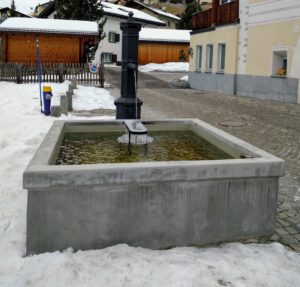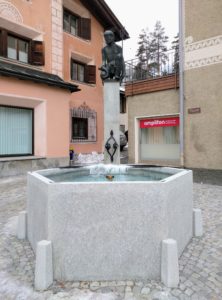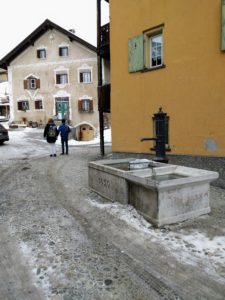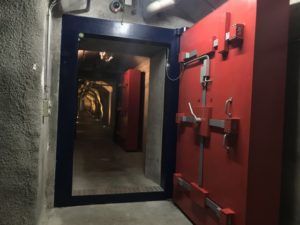More than any other country, Switzerland’s ethos is centered around preparing for civilizational collapse. - Click to enlarge All around Switzerland, for example, one can find thousands of water fountains fed by natural springs. Zurich is famous for its 1200 fountains, some of them quite beautiful and ornate, but it’s the multiple small, simple fountains in every Swiss village that really tell the story. Elegant, yes, but if and when central water systems are destroyed these fountains are a decentralized and robust system for providing everyone with drinkable water. The Swiss political system is also decentralized. If the central government fails, the Swiss might not even notice. The mountains and valleys also
Topics:
Alex Tabarrok considers the following as important: Black Swans, Europe, Featured, Fountain, Geography, Global news on Switzerland, Landscape architecture, Nassim Taleb, newslettersent, Public art, Swiss Alps, Swiss Banks, Swiss Government, Swiss people, Switzerland, Water, Zurich
This could be interesting, too:
Nachrichten Ticker - www.finanzen.ch writes Die Performance der Kryptowährungen in KW 9: Das hat sich bei Bitcoin, Ether & Co. getan
Nachrichten Ticker - www.finanzen.ch writes Wer verbirgt sich hinter der Ethereum-Technologie?
Marc Chandler writes March 2025 Monthly
Mark Thornton writes Is Amazon a Union-Busting Leviathan?
| More than any other country, Switzerland’s ethos is centered around preparing for civilizational collapse. | |
| All around Switzerland, for example, one can find thousands of water fountains fed by natural springs. Zurich is famous for its 1200 fountains, some of them quite beautiful and ornate, but it’s the multiple small, simple fountains in every Swiss village that really tell the story. Elegant, yes, but if and when central water systems are destroyed these fountains are a decentralized and robust system for providing everyone with drinkable water.
The Swiss political system is also decentralized. If the central government fails, the Swiss might not even notice. The mountains and valleys also mean that Swiss towns and villages are geographically independent yet linked in a spider-web of robust connections. |
|
| Despite being at peace since 1815, Switzerland is prepared for war. Swiss males (and perhaps females in the future) are required to serve in the military (those who cannot, pay a special tax) creating a robust reservoir of trained citizens ready to serve in an emergency.
The Swiss have been tunneling the Alps for hundreds of years creating innumerable secret hideaways for people and stores.
|
|
| In addition, to thousands of military bunkers permeating the Swiss mountains there are several hundred thousand private and public fallout shelters the largest of which can hold some 20,000 people. Some of the largest installations have been decommissioned and even turned into museums but there is little doubt that they could be rapidly re-purposed.. As the Swiss continue to improve their already fantastic railway system it’s standard practice to convert old railway tunnels to security shelters.
Buried deep alongside the hydroelectric dams, shelters and food stores, the Swiss also have libraries ready to reboot civilization:
Switzerland is famous for being the place to store wealth in times of crisis and that remains true today with a few twists. The old-rich store their gold in heavily guarded Swiss banks, the nouveau-riche store their bitcoins in Swiss underground bunkers built to withstand cyber- and nuclear attack: |
It’s no surprise that Nassim Taleb likes Switzerland because this is a country that has made itself anti-fragile in order to survive the black swans of civilizational collapse.
Hat tip: Maxwell.
Tags: Black Swans,Europe,Featured,Fountain,Geography,Landscape architecture,Nassim Taleb,newslettersent,Public art,Swiss Alps,Swiss Banks,Swiss Government,Swiss people,Switzerland,Water,Zurich




